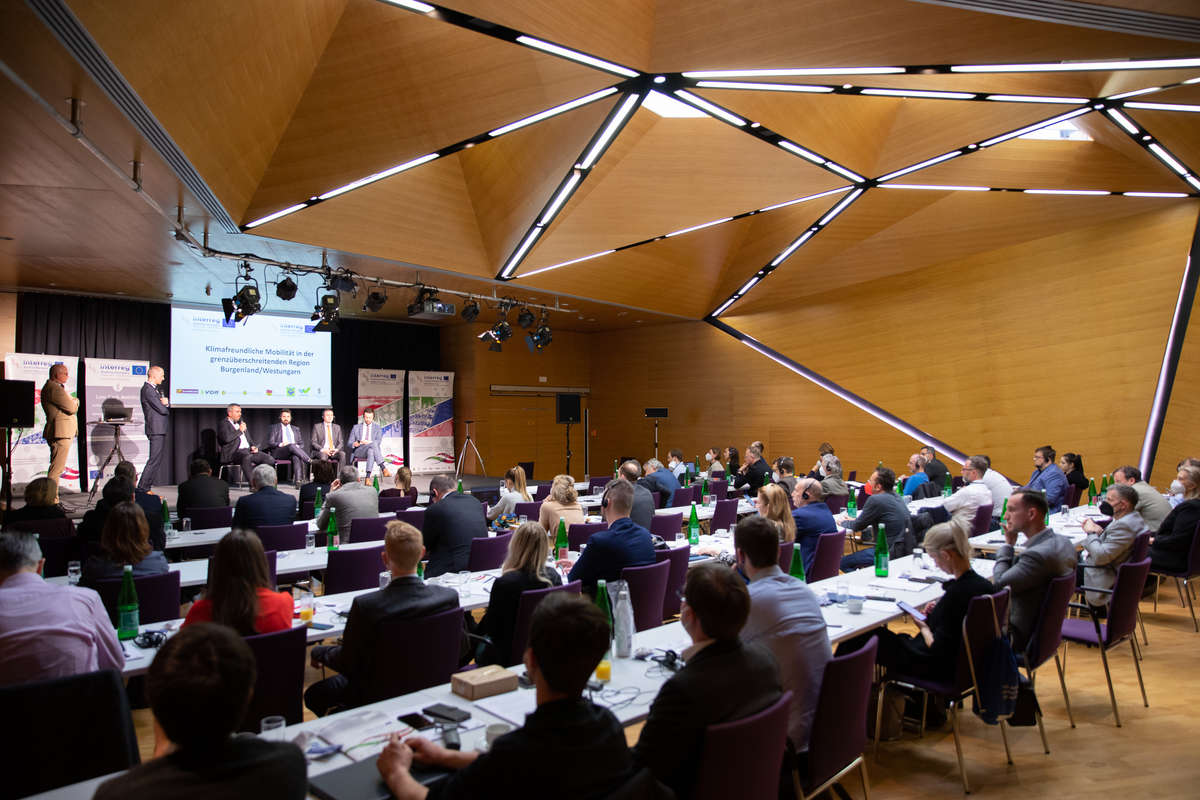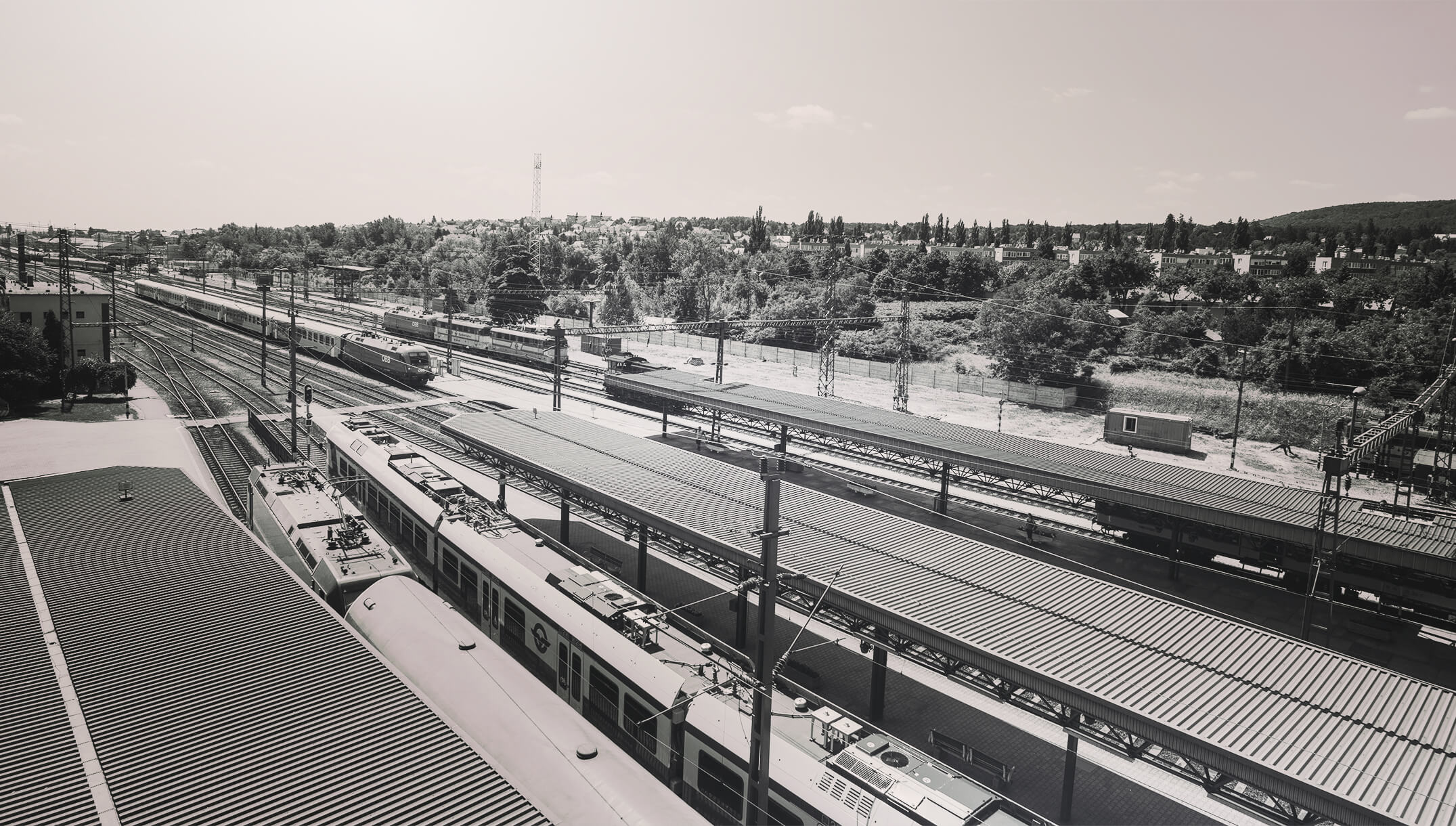Climate-friendly Mobility in the Border Region: Final Conference of the Interreg AT-HU Projects "SMART-Pannonia" and "Low Carb Mobility
On March 9th the final conference of "Low Carb Mobility" took place in Eisenstadt.

Mobility connects. Many in the Burgenland-West Hungary border region still remember that this is not a matter of course. Cross-border cooperation on the subject of mobility is all the more important here, because mobility is not only essential for human coexistence, but also an important lever in climate protection, which is currently more in focus than ever, and which can also only take place across borders. The improvement of sustainable mobility at the local and regional level is the overarching objective of the two Interreg projects "SMART Pannonia" and "Low Carb Mobility", whose partner organizations came together on this occasion. The detailed program of the event can be found here.
Implemented highlights and current challenges
To get started, the respective lead partners gave summarizing reviews of the activities that have been conceived and implemented in the “SMART Pannonia” and “Low Carb Mobility” projects since 2016. After an outlook on the new program period, representatives of the project partner organizations discussed the importance of cross-border cooperation in view of new economic, ecological and political challenges on the basis of the focus topics "Public Transport" and "Active Mobility". It was emphasized that forward-looking forms of transport such as the train, everyday cycling or e-mobility have an increased need for cross-border planning and cooperation and thus represent challenges that are best mastered together.
Intensified cooperation
High-ranking political representatives from Hungary and Burgenland took up the topic of jointly mastering several current challenges in the central discussion round for the conference. All participants agreed that the confluence of several historically unique challenges - pandemic, war, climate change - can only be solved by continuing the tradition of good cooperation. In the mobility sector, with its connection to the thematic complexes of energy and climate protection, all representatives saw numerous possible approaches to help solve current problems. A clear commitment to the expansion of public transport came from Burgenland. Transport Provincial Councilor Heinrich Dorner referred to the infrastructure package agreed with ÖBB and Raaberbahn and emphasized the increasing importance in the state budget. In addition to infrastructure measures and awareness-raising, official measures also represent a lever. The speed of the current events also requires quick ways of implementation, stressed Provincial Councilor Dorner in conclusion. However, social compatibility must also be taken into account, because "the focus is always on people," says Dorner.
The results of the talks were recorded in the by Provincial Councilor Dorner, the district president of Győr-Moson-Sopron Zoltán Németh and the chief notary Dr. Péter Balázsy, representative of Vas County, solemnly signed the Memorandum of Understanding to intensify cross-border cooperation.
Moving the future together
The afternoon program prepared by the Mobility Center Burgenland in cooperation with the project partner organizations offered the numerous participants from Hungary and Austria the opportunity to look at the Interreg projects from different perspectives: Studies on bus and train were presented as well as energy-economic aspects of the mobility transition were examined. Finally, concretely implemented measures at the Wulkaprodersdorf and Fertőszentmiklós stations once again illustrated the connecting character of cross-border public transport. In view of the compilation of the measures presented, which in addition to the infrastructure and the increase in knowledge also affected awareness-raising, all participants agreed when it came to climate-friendly mobility in the border region: Even if we are on the right track, there is still a lot to do.


